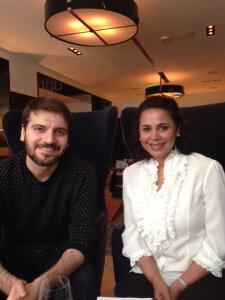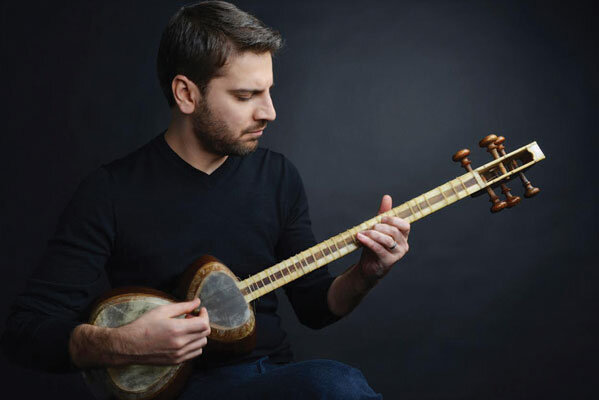“Music is an expression of my love for God” -- Sami Yusuf
To be honest, when I first met Sami Yusuf I didn't fully realize his megastar status. It probably made it easier for me to ask him for an interview. As I was writing a feature on him for “The Islamic Monthly”, I realized just what a superstar he really is -- packing concert stadiums around the world, selling over 31 millions albums, having almost seven million Facebook fans, and amassing some impressive titles: “Islam’s biggest rock star”, according to Time magazine, and the “most successful British musician since the Rolling Stones,” according to European channel ARTE Metropolis.But it is Yusuf’s spiritual approach to his music, his intellectual pursuit for truth and tradition, and his humanitarian work to feed the world’s hungry that is truly inspiring.“Music is an extension of who I am,” Yusuf tells me, “I’m a lover of the sacred, and music is an expression of my love for God and for the great traditions.”He calls his genre “Spiritique”, which he explains is a celebration of timeless wisdom. “You can find this wisdom or truth in all the great traditions; it is in Bulleh Shah and Maulana Rumi as well as in the teachings of Aristotle and other Greek philosophers. All that wisdom has a thread of truth in it, it has the sacred in it, and that’s what I’m concerned with.”“The message that I have, which may be controversial for some, is that all the religions of this world are ultimately expressions of the same truth. We have to be brave enough to believe in our own faiths, but also respect and accept other orthodox traditions. And we have to promote cross-cultural, cross-religious intellectual dialogue.”My family went to Yusuf’s concert at the Strathmore Music Center near Washington, D.C. last September. He sang a number of songs from his album “The Centre” as well as traditional favorites like “Hasbi Rabbi”. Many of his songs start off in English, and blend into one of the several languages in which he sings, including Arabic, Persian, Azeri, Turkish, Urdu and Malay. He had an easy rapport with his audience and encouraged us to sing along; the D.C. crowd was definitely more tepid than the ones he’s used to in Cairo and Istanbul. But his music had a visible and audible impact. My father-in-law, typically quiet and reserved, was clapping and tapping along; this was the first time he had heard Yusuf's music and he said he felt uplifted. My husband said he felt more inspired to pray after listening to Yusuf’s music than he does after many Friday khutbahs (sermons).Yusuf's new album, "Songs of the Way" is a tribute to his teacher Seyyed Hossein Nasr, who recites several poems in the album. In February, he released what he calls the first interfaith anthem, called "The Gift of Love", to mark the United Nations' World Interfaith Harmony Week; Yusuf doesn't profit from the song but hopes it will become a rallying anthem for peace. He is working with AR Rahman on a soundtrack for a film about Prophet Muhammad (pbuh), and just finished a multi-city sold out European tour.I asked Yusuf how he stays centered, given his popularity, fame and the temptations of the business. “Meditation, contemplation, reflection and constant remembrance of God,” he says. “There really is no other way.”Yusuf is the Global Ambassador Against Hunger for the UN World Food Programme. He’s composed and recorded a number of songs to raise awareness and funds to alleviate hunger around the world. In 2011, he composed a song called "Forgotten Promises", one of my favorite songs and videos by Yusuf; all proceeds were donated to WFP to alleviate hunger in the Horn of Africa. In 2013, he recorded "Silent Words" to support efforts to help Syrian refugees, and in 2014 proceeds from the song "Hope Survives" aided those affected by Typhoon Haiyan in the Philippines."Charity is a duty," Yusuf says, "it's not something we should get an award for."You can listen to Sami Yusuf’s most spiritually uplifting songs on a serenity playlist. He encourages us to share a meal with a hungry family this Ramadan through the World Food Programme by donating here: https://give.wfp.org/4922/?step=country

